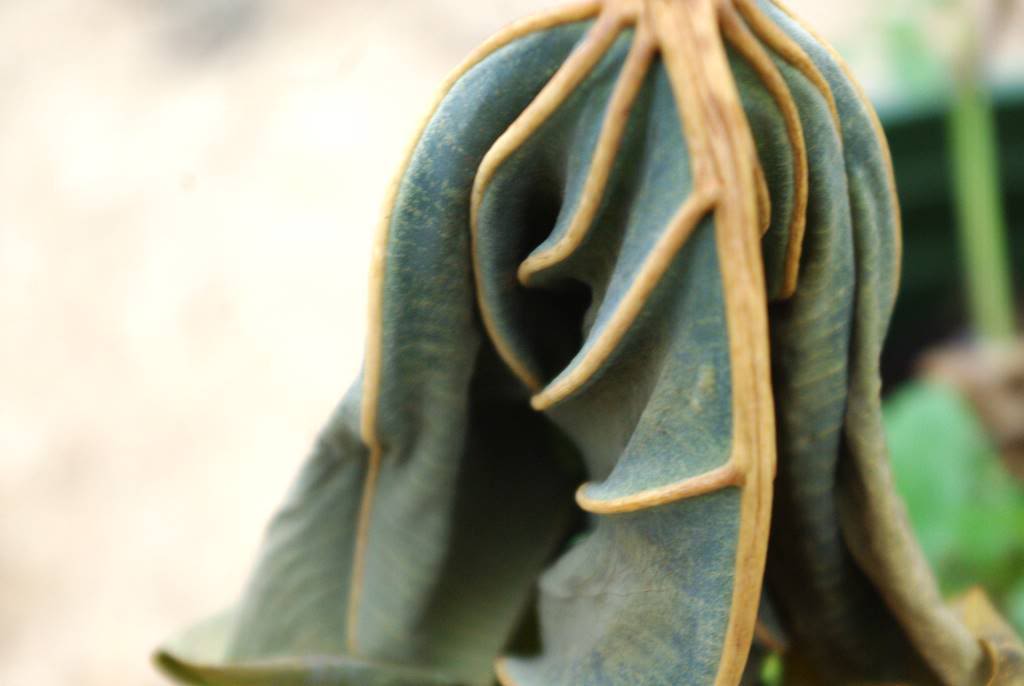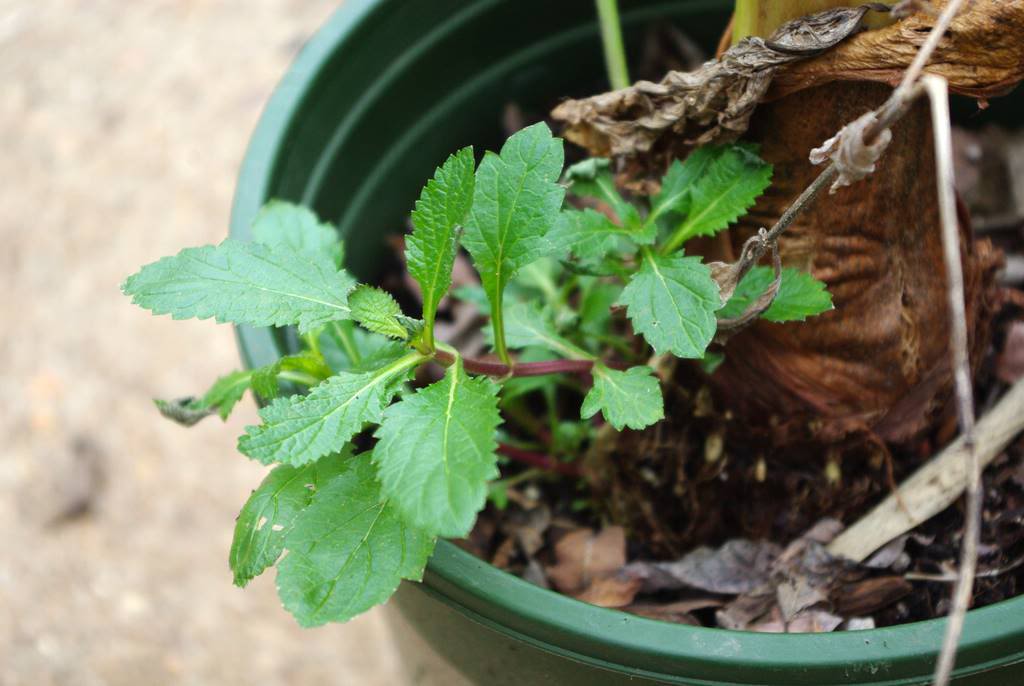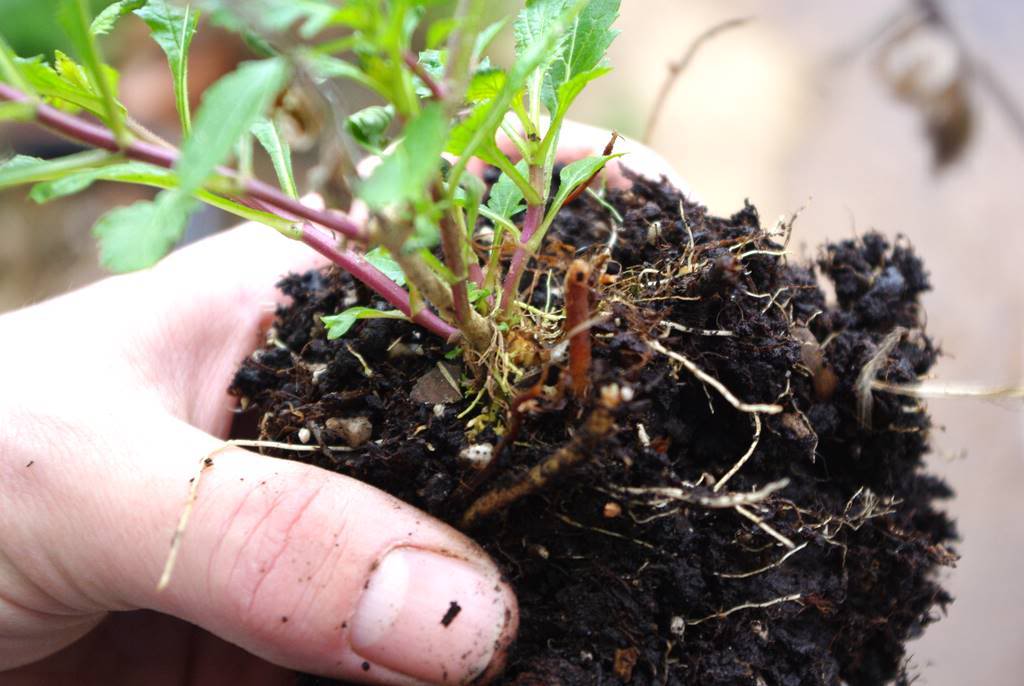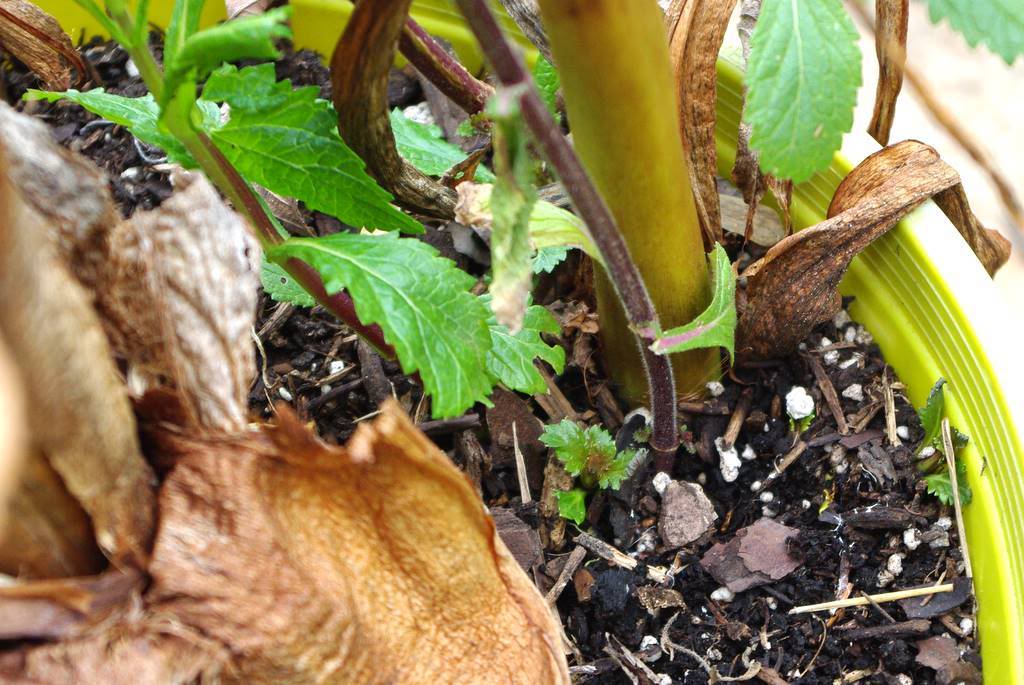They have some other plants growing in them. "Weeds" was my first thought, but the leaves looked familiar. After a moment I realized they were volunteer Verbena bonariensis plants!
When I first saw Verbena bonariensis in a magazine a few years ago, I knew I'd have to grow it. I bought a packet of seeds, and grew a few plants that first year. Partway through the summer they became covered in powdery mildew, making the plants much less attractive.
The next year (and each year since) I've had volunteer seedlings of this plant, and it seems to do much better when I ignore it completely. No signs of mildew the last couple of years, and this past summer I saw it growing in three different places.
 |
| This elephant ear leaf has really nothing to do with this post, but I liked the look of it. |
Verbena bonariensis is not cold-hardy enough to survive our winters, so I grow it as an annual. This fall I started thinking about digging up some of the plants to overwinter them, so I could see what they'd do their second year.
Now that I have some growing in pots I won't need to do any digging -- that is if I can get the elephant ear bulbs out without completely destroying the verbena roots.
It turns out this was relatively easy with the one pot -- pulling the elephant ear "stump" got the bulb right out of the soil, leaving the verbena plant pretty much intact.
The second plants was quite a bit taller:
plus the elephant ear had a substantial side bulb which was growing right under the verbena:
It ended up being pretty simple to get that one out too -- I pulled the entire soil "chunk" out of the pot, then broke it up and removed the bulbs.
The verbena went back into the pots, and I'll bring them into the garage at some point in the next couple of weeks, or maybe after their top growth goes dormant. I want them to survive the winter, but I don't want them trying to grow while in the garage.
So if all goes well I'll have a couple of these plants ready to put into the ground somewhere in the spring, and I'll get to see their wonderful blooms much earlier in the year.
Of course if these plants don't make it I'll still have the seedlings that will undoubtedly be growing everywhere next year, so there's not too much pressure to get these plants through the winter. It would just be nice to see what difference an extra year would make.
.






I have had this plant show up in my garden every year for the last 10 years. Ever since I sowed that first packet of seeds. The seeds seem to be cold hardy even through the very cold winters we had in the past 2 years. It is a delightful plant but a little invasive in a nice way. Of course your cold is more long term so I'm sure you are happy to have plants to winter over.
ReplyDeleteI love Verbena bonariensis almost beyond reason...it's kinda silly! I planted a few when I first started the garden and am now rewarded with ample seedlings (often in the most unusual places). Luckily, they do over-winter for us here in PDX...so I can usually count on them from year to year :-) I actually found a dwarf variety this spring ('Lollipop'), which normally wouldn't excite me, but they are great when you garden on a slope...the flowers are more at eye-level...not above your head :-)
ReplyDeleteI love Verbena bonariensis, too. I think it belongs in every garden, no matter what style.
ReplyDeleteDo any of you have problems with powdery mildew on it (or on other plants?) or is that a Midwest issue?
ReplyDeleteYeah...PM is definitely an issue, although some years are worse than others...I usually start spraying an anti-fungal at the very first sign of it. This year, I managed to keep it pretty much at bay...even on the Monardas (which is a minor miracle).
ReplyDeleteI had mildew on mine even with our dry summer but no blackspot on the roses this year!
ReplyDeleteI remember reading that there are some powdery mildews that thrive when it's wet, and some that thrive when it's dry. I'll have to check into that again sometime. I know that I hate spraying, so either leave the mildew alone or get rid of the plants that have it.
ReplyDeleteAlan, I've never had an issue with powdery mildew on Verbena bonariensis. But then it's typically bone dry here in the summer.
ReplyDelete